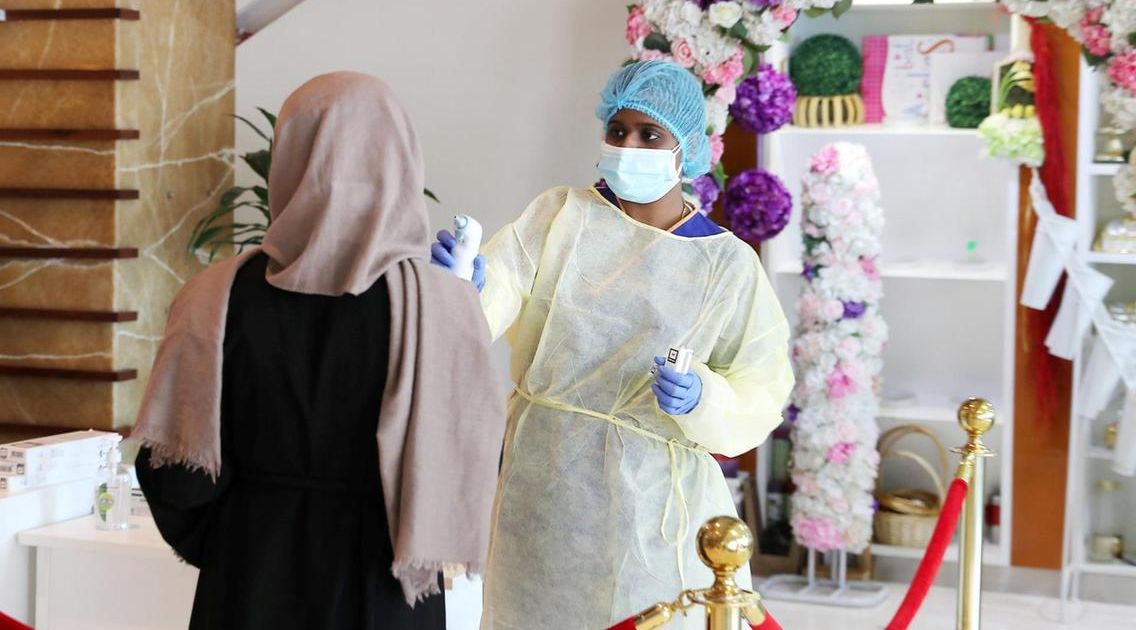Since the beginning of Covid-19, healthcare experts and doctors have been trying to counter the symptoms of the infection. They tried a plethora of medicines, ranging from antimalarial medicine to HIV drugs and anti-inflammatory medication for arthritis, to help severely ill patients to increase their chances of survival. Now eight months into the pandemic, medics have a clearer picture on managing symptoms that vary dramatically between cases. Every day has new developments that potentially change the known knowledge and information. In absence of any vaccine or treatment for Covid-19, still the best weapon with medics is the shared knowledge.
At the height of the pandemic, internal medicine specialist Dr Faisal Dalvi shares that during pandemic peak, he had 40 Covid-19 patients under his care at Burjeel Hospital in Abu Dhabi, many of which were in critical condition. He says, “Initially we were very naive as the virus was so new. Guidelines published by Dubai Health Authority and the Department of Health were updated every week as more was learnt about the virus.”
Antiviral medication has been the biggest breakthrough, however the efficacy of drugs like Remdesivir, has been doubtful. “When we did an X-ray on patients, we found the virus had targeted the lungs in most of them so they developed bilateral pneumonia,” said Dr Dalvi. He continues, “I was using (malaria medicine) hydroxychloroquine and Kaletra, a combination of HIV drugs lopinavir and ritonavir. They did not allow the virus to replicate so it would not be as severe in the lungs. None of my patients died.”
Antiviral drug remdesivir has been used to treat Ebola and has showed reducing duration of coronavirus symptoms from 15 days to 11 in a similar way. But still WHO study said 11,266 patients from 500 hospitals across 30 countries had little to no effect of remdesivir on survival rates in critically ill Covid-19 patients.
“With regards to lines of treatment, there is no big change in what we were doing in March compared with now,” said Dr Adel Al Sisi, a critical care consultant at Prime Hospital in Garhoud. “There is a group of medicine we could use. Some are being used more now than others were in March but it is always changing,” he adds.
Positive Covid-19 patients are categorized into five categories and then treated accordingly. Category one patients were asymptomatic; category two had mild symptoms; category three were moderate; category four were severe; and category five was for patients in a critical condition.
Category one and two patients were sent home for 14 days quarantine. Patients with mild symptoms were sent into isolation with cough medicine or paracetamol to treat body aches and fever, and others required more invasive therapies. “Stabilizing a patient’s organ function early on was critical in the most severe cases. This was done via a variety of treatments, including broad spectrum antibiotics, blood thinners and other anticoagulant therapies,” said Dr Al Sisi.
Dexamethasone is a steroid which is commonly used by doctors to calm down the patients. But this drug too can interfere with body’s natural defence ability.
“This group of antiviral medications were studied in the early days of coronavirus once there was a common pool of patients. Research was initiated very quickly and their outcomes closely monitored. This was done worldwide and the results shared widely. The positive results encouraged the use of these drugs in the early stages,” said Dr Al Sisi.
Dr Brijesh Bhardwaj, Head of Department and Internal Medicine specialist at NMC Royal Hospital in Dubai Investments Park, said that medics have quickly learnt how to effectively use ventilators. The treatment now includes prone ventilation - supplying oxygen to patients lying face down has proved to be more effective in most severe cases as it improves oxygenation when compared to traditional modes of supported breathing.
NMC doctors have also reportedly found success in treating the coronavirus with immunosuppressive drug tocilizumab, which is more commonly used for arthritis in children.
Dr. Dalvi said, “Without proper oxygenation we knew they would eventually die. Prone ventilation for patients in intensive care was much more successful, and this was only something we learnt from treating more patients with the virus. Keeping them lying down for 15 to 16 hours allowed them to absorb more oxygen.”
Another life-saving breakthrough was giving an injection of low molecular weight heparin to help prevent blood clots in the lungs.
WAM
 AR
AR UR
UR
